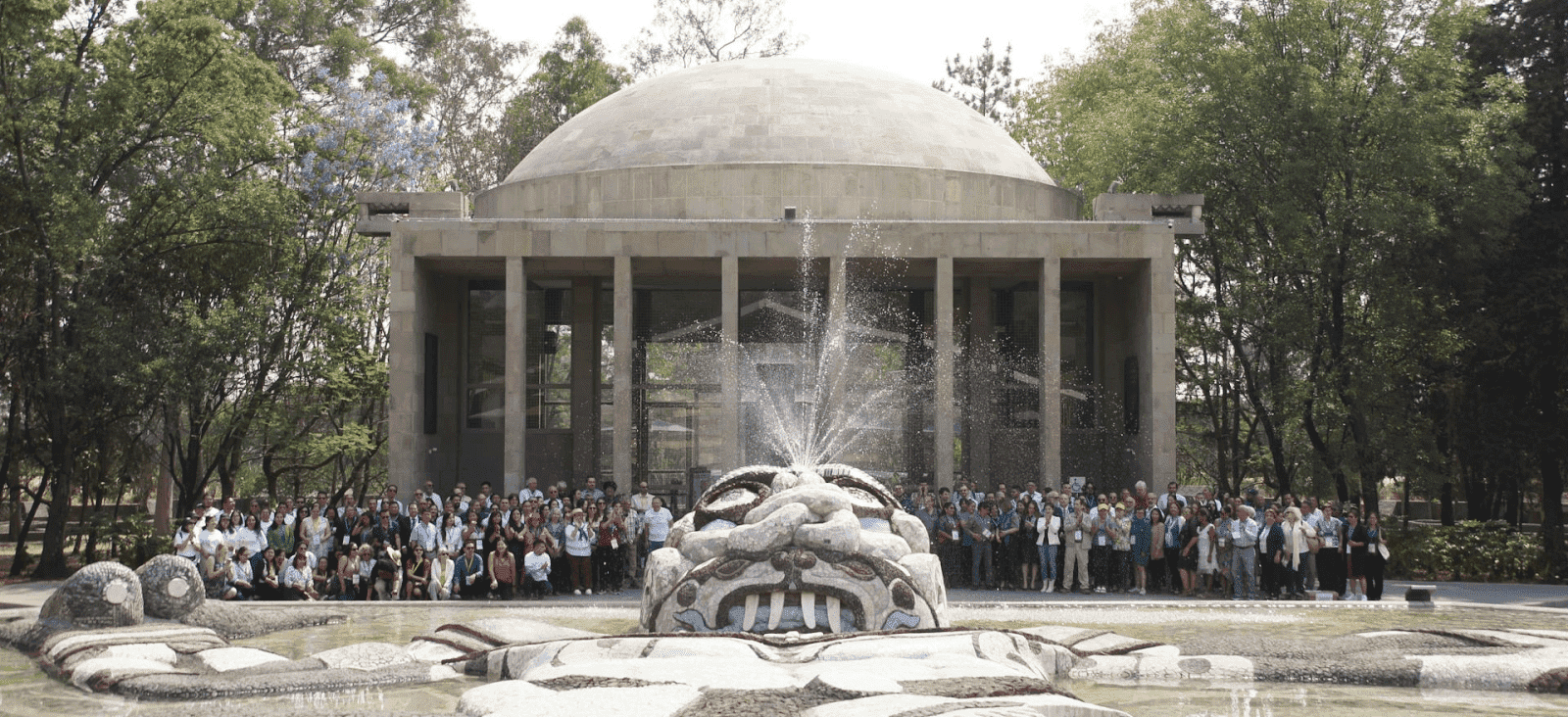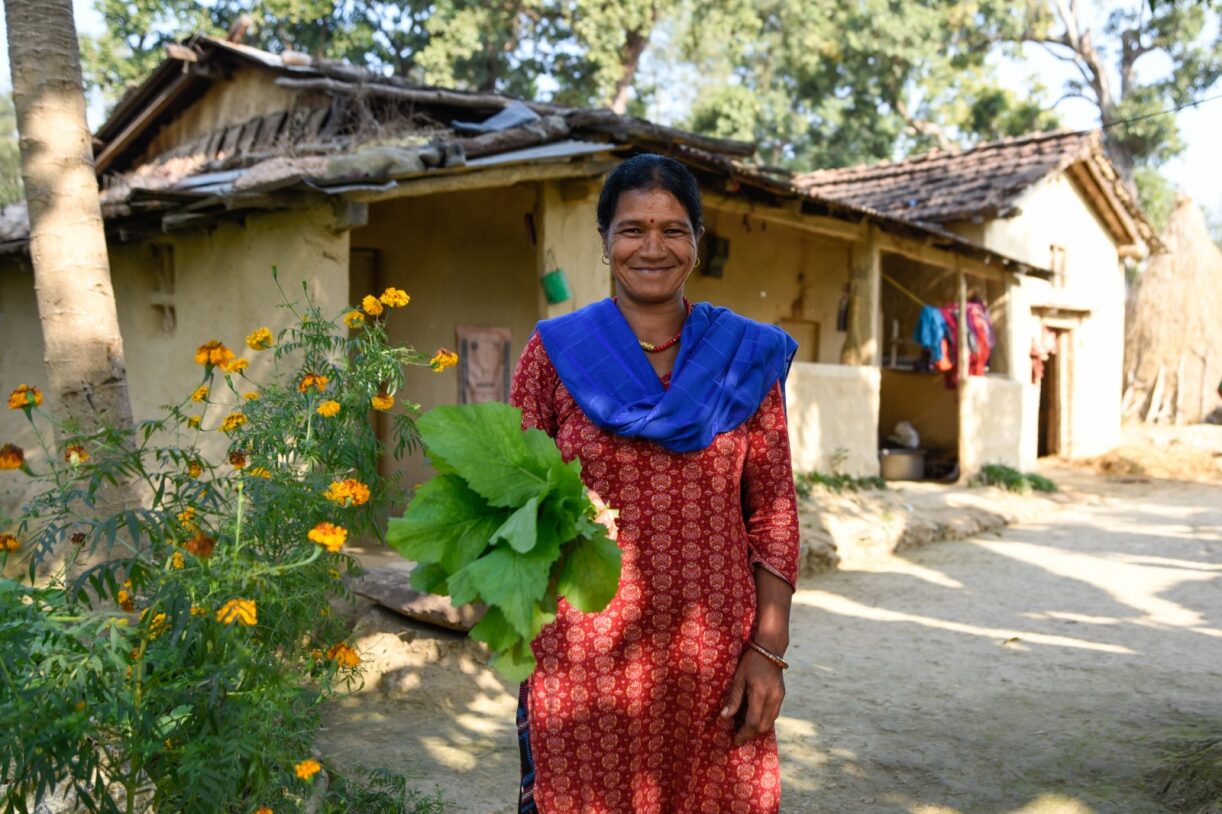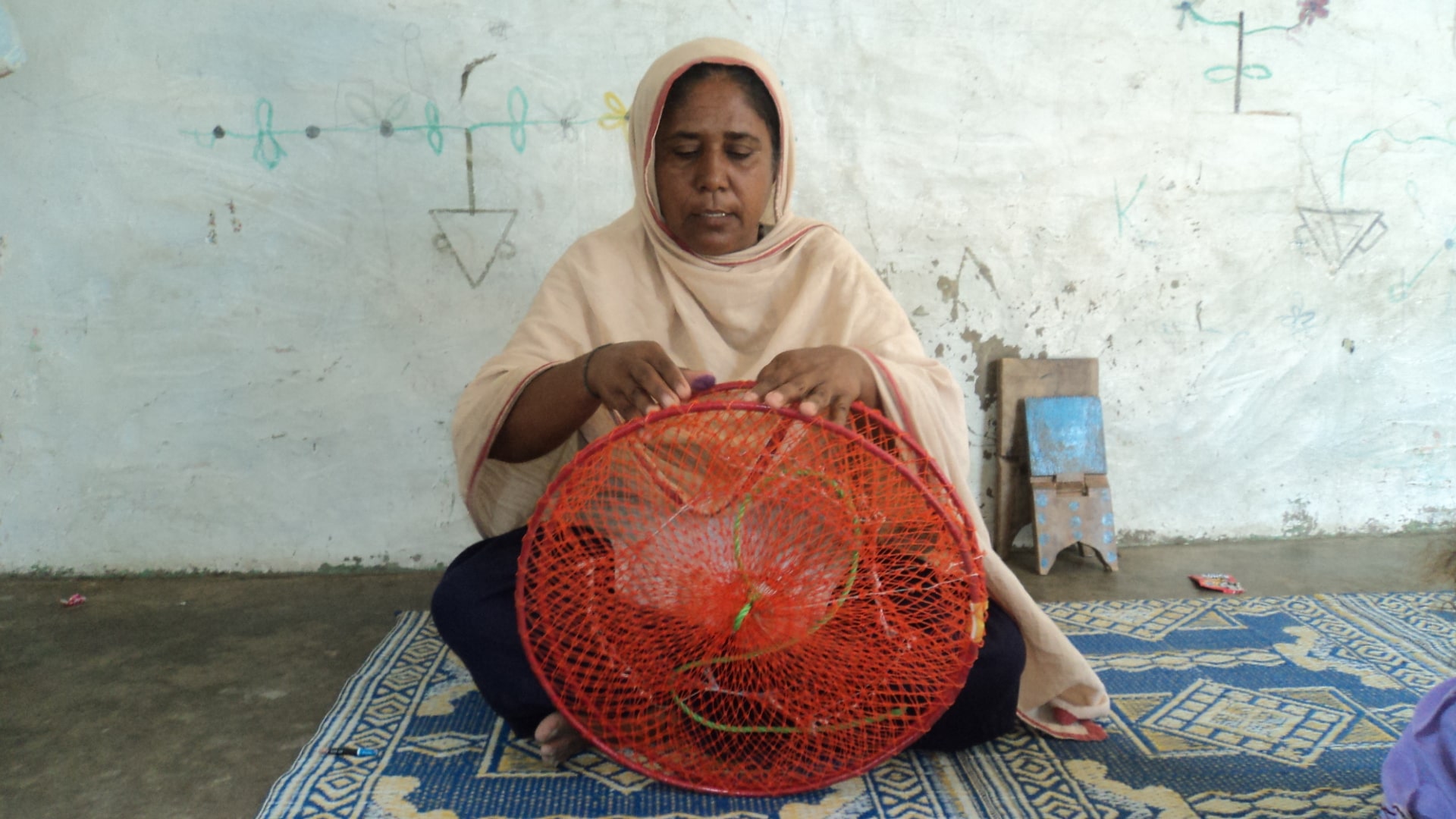“To change the world – you have to use your voice” Challenging the status quo to promote gender safety and gender equality at the recent Global Environment Facility Assembly
Vancouver, Canada – From 22-25 August, an estimated 1,500 delegates from 185 countries joined together for the 7th Global Environment Facility (GEF) Assembly where the new Global Biodiversity Framework Fund was launched. The 7th Assembly also opened its doors to a record number of civil society, youth and Indigenous Peoples representatives to influence the structure of the GEF in its ninth replenishment cycle. At the request of the GEF, IUCN supported and worked with three representatives from the Resilient, Inclusive and Sustainable Environments (RISE) grants challenge to remind the assembly of GEF’s environmental and social management framework – which includes requirements to understand, mitigate, and prevent gender-based violence in environmental programmes as a part of its safeguards.
The Kunming-Montreal Global Biodiversity Framework and its Gender Plan of Action are the first among multilateral environmental agreements to recognise the importance of addressing gender-based violence, particularly for women rangers and environmental human rights defenders. The three RISE grants challenge representatives at Assembly carried a special message – that the globe’s vision for a healthier and more sustainable planet needs to also promote gender safety as a part of a comprehensive approach to driving gender-responsive environmental action.

[RISE representatives meet with IUCN’s Acting Director General Dr. Grethel Aguilar (centre).]
The Kunming-Montreal Global Biodiversity Framework and its Gender Plan of Action are the first among multilateral environmental agreements to recognise the importance of addressing gender-based violence, particularly for women rangers and environmental human rights defenders. The three RISE grants challenge representatives at Assembly carried a special message – that the globe’s vision for a healthier and more sustainable planet needs to also promote gender safety as a part of a comprehensive approach to driving gender-responsive environmental action.
During the Assembly, Devi Anggraini, María Pino Castañon and Samantha Munagandu met with IUCN’s Acting Director General Dr Grethel Aguilar. The RISE leaders shared details about their work with IUCN to address gender-based violence and environmental linkages – highlighting the importance of leaving no woman or girl behind as the globe undergoes concurrent climate, biodiversity and health crises. This message was all the more vivid as the smoke from the British Columbia fires surrounded the Assembly venue and discussions about the recent Maui wildfires permeated the Vancouver Convention Centre. During the meeting, Dr Aguilar emphasised the importance of speaking up and out, advising RISE leaders that “to change the world – you have to use your voice”. This advice permeated the spirit of RISE’s contributions to the Assembly as RISE leaders worked to ensure that their voices and their representation of the women from the communities they work with daily were heard.

“I am grateful to IUCN, a very active member of the GEF Gender Partnership, for bringing the critical voices of the RISE grants challenge winners to the GEF Assembly.” – Verona Collantes, Senior Gender Specialist, GEF
The RISE grants challenge winners also met with Verona Collantes, Senior Gender Specialist at the GEF Secretariat. She shared how their experiences will inspire future gender action at GEF: “Devi, Samantha and Maria, who I had the privilege to meet in person, brought to the attention of the GEF Assembly participants, the often dismissed or disregarded issue of gender-based violence faced by many women and girls as they engage in conservation actions and the protection of the environment. The GEF Gender Partnership, which I am honoured to lead, will gain inspiration from relentless advocates including the RISE grants challenge winners to ensure that through GEF-8 and GEF-9, all projects submitted for GEF funding would prioritise addressing systemic gender inequalities, including GBV and gender stereotypes.”

[In the foreground Devi Anggraini and in the background, Samantha Munagandu and María Pino Castañon listen in to remarks by IUCN’s Acting Director General Dr Grethel Aguilar during a GEF Assembly plenary in Vancouver, Canada.]
From Zambia, Samantha Munagandu is a Project Coordinator at ActionAid Zambia, where she works as the lead implementer for a RISE grant challenge award. She works daily with local communities and partners from the local Young Women’s Christian Association (YWCA) to address the impacts of climate change on worsening rates of sex-for-fish practices, where men withhold the sale of fish catches to women who need the supply to earn a living and support their families – unless they can extract sexual extortion as the price to buy fish. In a panel on gender and environment data, she shared how these practices are unseen and left unaddressed when women’s essential fishery roles are not sufficiently taken into account by environment programmes, and have multiple negative effects on women’s health. HIV/AIDs rates are high due to sex-for-fish practices and women can be exposed to domestic violence when partners uncover the exploitation.

“Thank you so much for the opportunity to interact. This week has been my favourite of my whole life. Many thanks to all the IUCN team members. I am so humbled at such a gesture.” – Samantha Munang’andu, ActionAid Zambia
From Mexico, María Pino Castañon is a Communications Manager at Espacio de Encuentro de las Culturas Originarias A.C. (EECO) where she works closely with colleagues and partners from World Wildlife Fund (WWF) Mexico to address sexual harassment in workplaces that harm women and disincentivise their participation in sustainable ecotourism that is paramount for livelihoods across Mexico’s coastal communities. In protected areas of the Yucatán Peninsula and Oaxaca work is underway to engage local communities to integrate gender perspectives and gender-based violence risks within regulatory instruments, and to promote the economic empowerment of women, as gender-based violence prevention and mitigation strategies in ecotourism. Meeting GEF Assembly delegates to discuss how environmental programming can improve gender equality approaches and outcomes by better considering the threats and risks of gender-based violence that peril equitable access to the benefits and management roles over environmental resources and opportunities was a unique experience for EECO to share its learning and emphasise its growing leadership on the topic. EECO’s RISE grant challenge award implementation so far has uncovered many different kinds of gender-based violence risks and problems – far more than they had anticipated. For example, that violence is also widely exercised on people belonging to the LGBTQ+ community in the communities where the project is being implemented.

“I just wanted to thank all of the IUCN crowd so much for this AMAZING experience! I’ve learned so much this week and it’s been really nice being able to share our projects with such amazing people. Thanks for all your warmth and for making us feel so welcome!” – María Pino Castañon, Espacio de Encuentro de las Culturas Originarias A.C. (EECO)
From Indonesia, Devi Anggraini is from the Taluk community, an Indigenous Peoples group in Sumatra Island and serves as the President of PEREMPUAN AMAN, which is the Association of Indigenous Women of the Archipelago and is a wing of Indigenous Peoples Alliance of the Archipelago (AMAN). Devi attended the Assembly in coordination with the GEF Secretariat and the Rights and Resources Institute, bringing a crucial message to the Assembly. Each day, the climate crisis, environmental degradation, and the expansion of large-scale industries worsen the gender-based violence risks that women and girls face – and Indigenous communities are at the frontlines of these attacks. In recent years, on average, an environmental defender was killed every other day. Indigenous Peoples face disproportionate attacks – nearly 40%, despite accounting for 5% of the global population (Global Witness, 2023). Two-thirds of women environmental human rights defenders that have been killed are Indigenous leaders. Women defenders face many kinds of gender-based violence to silence their activism and remain excluded in environmental policymaking spaces.
Under the RISE grants challenge, PEREMPUAN AMAN has been collaborating with the Asia Indigenous Peoples Pact (AIPP) and the International Work Group for Indigenous Affairs (IWGIA) to empower and elevate the voices of Indigenous women environmental human rights defenders to self-determine their priorities, voices, and strategies to end gender-based violence as a barrier to their defence of the environment. Spearheading the GEF Partnership Forum and an event on supporting women environmental human rights defenders, Devi shared that she works to represent the interests of 380,052 indigenous women across 2,000 indigenous communities across Indonesia and that much is needed to promote the protection of Indigenous and afrodescendant women leaders and that the recognition of land rights of Indigenous Peoples, afrodescendant and local communities is central to a human rights approach to combating climate change and environmental degradation.

“We need to have a lot of space to listen from Indigenous women, afrodescendants, and local women as they are not really visible in a lot of policy – nor partnerships that are designed to direct access to funding. This is just a beginning step.” – Devi Anggraini, PEREMPUAN AMAN
Together, RISE grants challenge leaders brought diverse but unified perspectives on the crucial importance of women’s contributions to environmental outcomes – and the importance of environment-related opportunities and roles to shape gender equality. Yet, much more is needed. Despite growing consensus and recognition that gender-based violence is interlinked with environmental sectors, issues and threats, there is still a significant lack of funding to address this intersection. The RISE grants challenge is not only still the world’s first and only mechanism designed to support environmental programmes to understand and address gender-based violence and environment linkages, but continues to be supported by IUCN and the United States Agency for International Development (USAID) leadership and resources. Increased support from funders, buy-in from environmental institutions, and consistent recognition across environmental policy spheres remain lacking. For example, though IUCN has received 1,189 requests for RISE funding between 2022 and 2023, and also received more than 400 requests for targeted information, technical support, capacity development and awareness raising on gender-based violence and environmental linkages since 2020 – there is still often limited mainstreamed institutional acceptance that these issues are interlinked across environmental organisations.
As a fund, the RISE grants challenge emphasises funding and partnerships that focus on locally-based civil society, indigenous, women-led and environmental organisations. By supporting non-traditional partnerships between these local organisations and environmental institutions as well as experts with experience addressing gender-based violence, RISE grants challenge activities are budgeted and designed based on the voices and leadership of local actors while IUCN supports capacity building as needed for organisations to meet fiduciary and administrative requirements from donors. In this manner, much can be learned by the global community in its goal of increasing inclusive and more direct finance to diverse groups – it can and must be done in collaborative and supportive partnerships.
It is across this landscape that RISE grants challenge leaders are working – to expand the evidence base on interlinkages, to build global learning and influence, and to ensure gender equality approaches and budgeting captures the whole picture of barriers and opportunities women and girls face around the world.
 [(At left) María Pino Castañon and Samantha Munagandu join a GEF Gender Partnership alongside leaders from Global Affairs Canada (at right) during the GEF Assembly.]
[(At left) María Pino Castañon and Samantha Munagandu join a GEF Gender Partnership alongside leaders from Global Affairs Canada (at right) during the GEF Assembly.]
The Resilient, Inclusive and Sustainable Environments (RISE) grants challenge is managed by IUCN under its partnership with the United States Agency for International Development (USAID) on Advancing Gender in the Environment (AGENT). The RISE grants challenge was developed based on IUCN’s landmark research on Gender-based violence and environmental linkages: the violence of inequality, which led to the establishment of the Gender-Based Violence and Environment Linkages Center (GBV-ENV Center) to mobilise and drive global learning and action to close the gaps on gender-based violence in environmental programmes. To sign up for news from the GBV-ENV Center and RISE, please click here.
You can learn more about RISE grantee leader organisations that attended the GEF Assembly here:
- ActionAid Zambia
- Association of Indigenous Women of The Archipelago PEREMPUAN AMAN
- Espacio de Encuentro de las Culturas Originarias EECO



